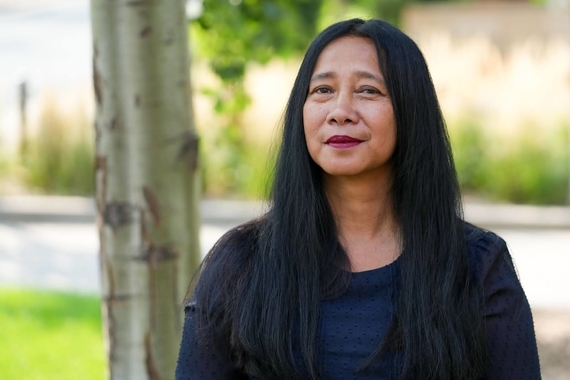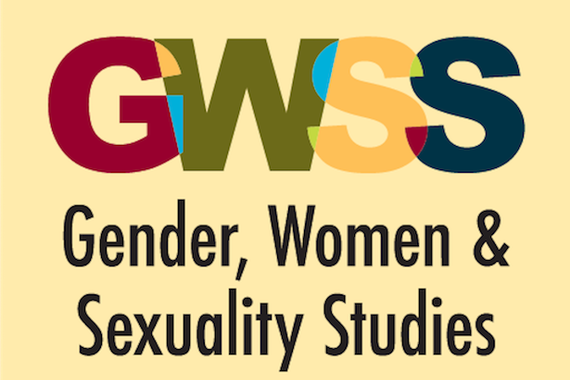GWSS Solidarity Statement
In light of recent events, the Department of Gender, Women & Sexuality Studies at the University of Minnesota is releasing the following statement of solidarity.
SOLIDARITY STATEMENT
Last week, the White House released a draft memo stating that gender will be henceforth defined by genitals, and that trans people's gender identity will not be recognized by any branch of the federal government. Gender is not binary. It is not defined by "genitals" or by biology. However, as a modern historical construct connected to histories of colonization and settler colonialism, the binary of male/female has been established as a "natural biological reality” to determine, regulate and normalize sex, gender role and gender presentation through exclusion. The myth that anyone outside the gender binary is "unnatural," “deviant,” or "monstrous" has historically been used to exclude and demean indigenous people, people of color, immigrants, disabled people, and gender nonconforming and intersex people in order to rationalize violence or harm against us. The Trump administration's attempt to erase the existence of trans and intersex people is the latest attempt at exclusion. We must resist this violent erasure.
As feminist scholars, we know that this attack on trans and intersex people is part of a larger pattern defining citizenship and rights through a natalism that marries together binary gender, heterosexuality, whiteness, and able-bodiedness as ideals. The myth of the gender binary was brought to North America as part of settler colonialism, chattel slavery, and anti-Black racism; it has been used to control and discipline indigenous people, Black people, other U.S. people of color, people in the “Third World,” and immigrants over the entire history of settlement and through U.S. geopolitical interests.
This week, two separate incidents of white nationalist (anti-Black and anti-Semitic) hate resulted in the deaths of 13 people. The White House is coordinating a military response to the Central American asylum seekers traveling together through Mexico, while it continues to support repressive regimes, remove immigrant children from their parents at the border, and develop plans to deny citizenship to children of immigrants born in the U.S. The ban on Muslims entering the U.S. continues to normalize violence against Arab, Muslim, and Middle Eastern immigrants. Nationalism and hate are also transnational and ongoing: this week in Brazil, the far-right extremist Jair Bolsonaro was elected President. The U.S.-backed Saudi military starves and bombs people in Yemen. In India, right-wing attacks on LGBTQ people, intellectuals, Dalits, and Muslims are unabated. In Gaza, the Israeli Defence Force attacks Palestinians protesting their imprisonment and fighting for the right of return.
The events of the last week are only a few recent manifestations of long histories shaped by colonialism, racism, cis-heteropatriarchy, and other forms of oppression. In our classes, we teach that binary gender and sexual violence are often enforced through racist norms and that racial, gender, and sexual hierarchies emerge from the same myths about biology as something "essential" that must define our place in the world. We take a transnational and intersectional feminist approach to highlight the connections between forms of injustice and violence that impact the lives of trans and nonconforming people in the U.S. and the lives of those against whom violence and erasure is normalized under the rhetoric of humanitarianism and security.
Therefore, we stand in solidarity with everyone disenfranchised by the Trump Presidency and U.S. imperialism, both inside and outside the United States. We take direction and inspiration from the social movements that have fought to create social and political change over the last decade: Black Lives Matter, trans and queer movements, immigrant movements, activists working against Islamophobia and the Muslim ban, disability justice movements, feminist movements that resist sexual violence, reproductive justice movements, movements to disrupt and dismantle capitalism world-wide, anti-occupation movements, anti-Fascist movements, anti-caste struggles, and anti-imperialist movements.
We encourage our faculty colleagues, administrators, staff, and students on the University of Minnesota-Twin Cities campus and across the UMN system, our neighbors in the Twin Cities, and all of our friends to join us in this commitment to support all of those violently marginalized in our society and to amplify just ways of distributing and inhabiting power.
Department of Gender, Women & Sexuality Studies
University of Minnesota, Twin Cities
October 31, 2018


